Why you need an all-in-one Recording Studio Management Platform for your Studio
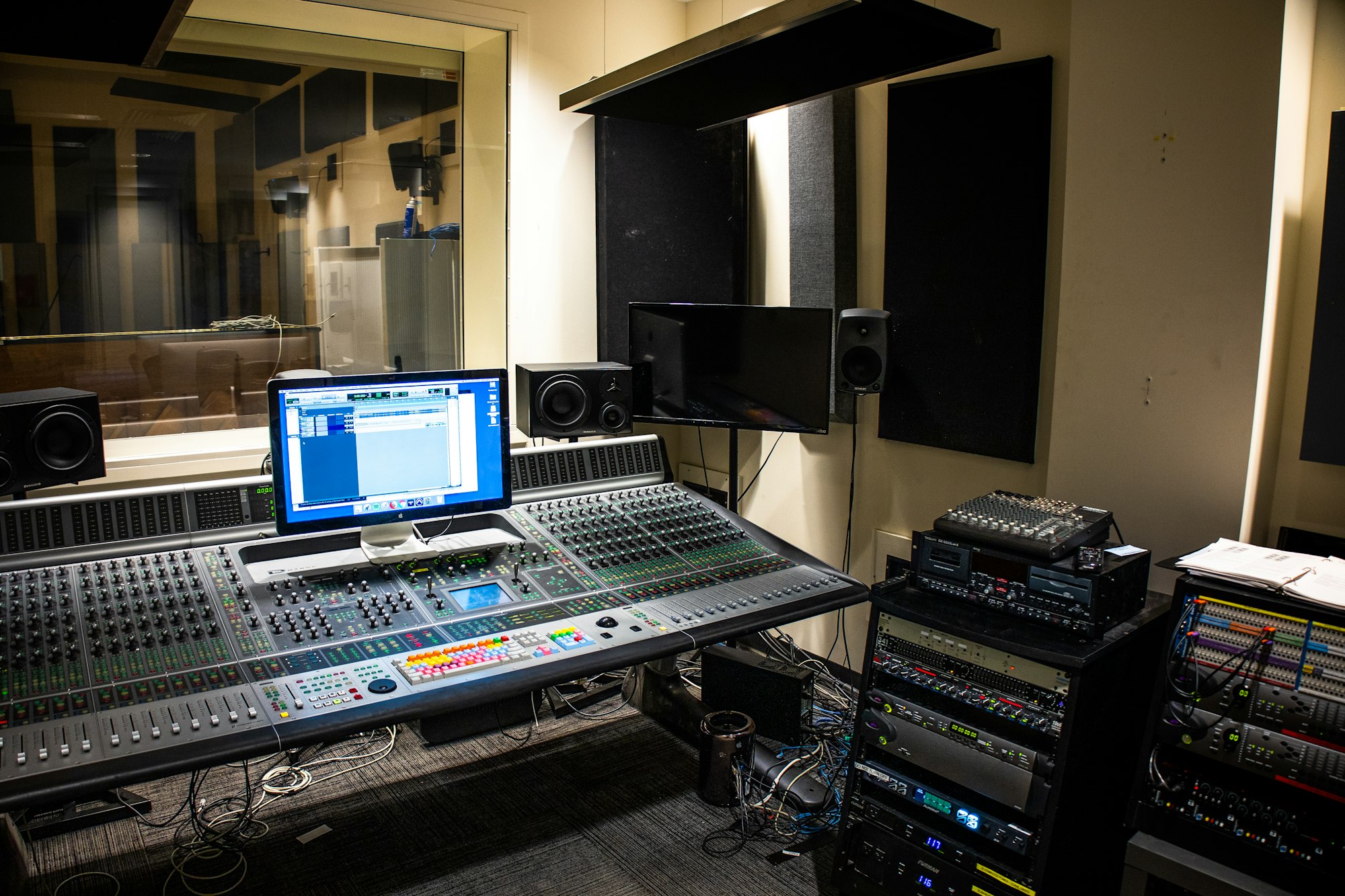
Introduction
In today's fast-paced and competitive music industry, managing a recording studio efficiently is more important than ever. That's where an all-in-one Recording Studio Management Platform comes in. Whether you're a seasoned studio owner or just starting out, having a comprehensive system to handle all aspects of your studio's operations can be a game-changer.
With an all-in-one Recording Studio Management Platform, you can streamline your administrative tasks, such as scheduling, invoicing, and client management. Say goodbye to the hassle of manually keeping track of bookings and payments. This platform also offers features like inventory management, equipment tracking, and project management, making it easier to keep your studio organized and running smoothly.
Furthermore, a Recording Studio Management Platform can enhance your client experience. By providing online booking, payment, and file sharing functionalities, you can offer a seamless and professional service that sets you apart from the competition.
Don't let the administrative side of running a studio hold you back. Invest in an all-in-one Recording Studio Management Platform today and take your studio to the next level.
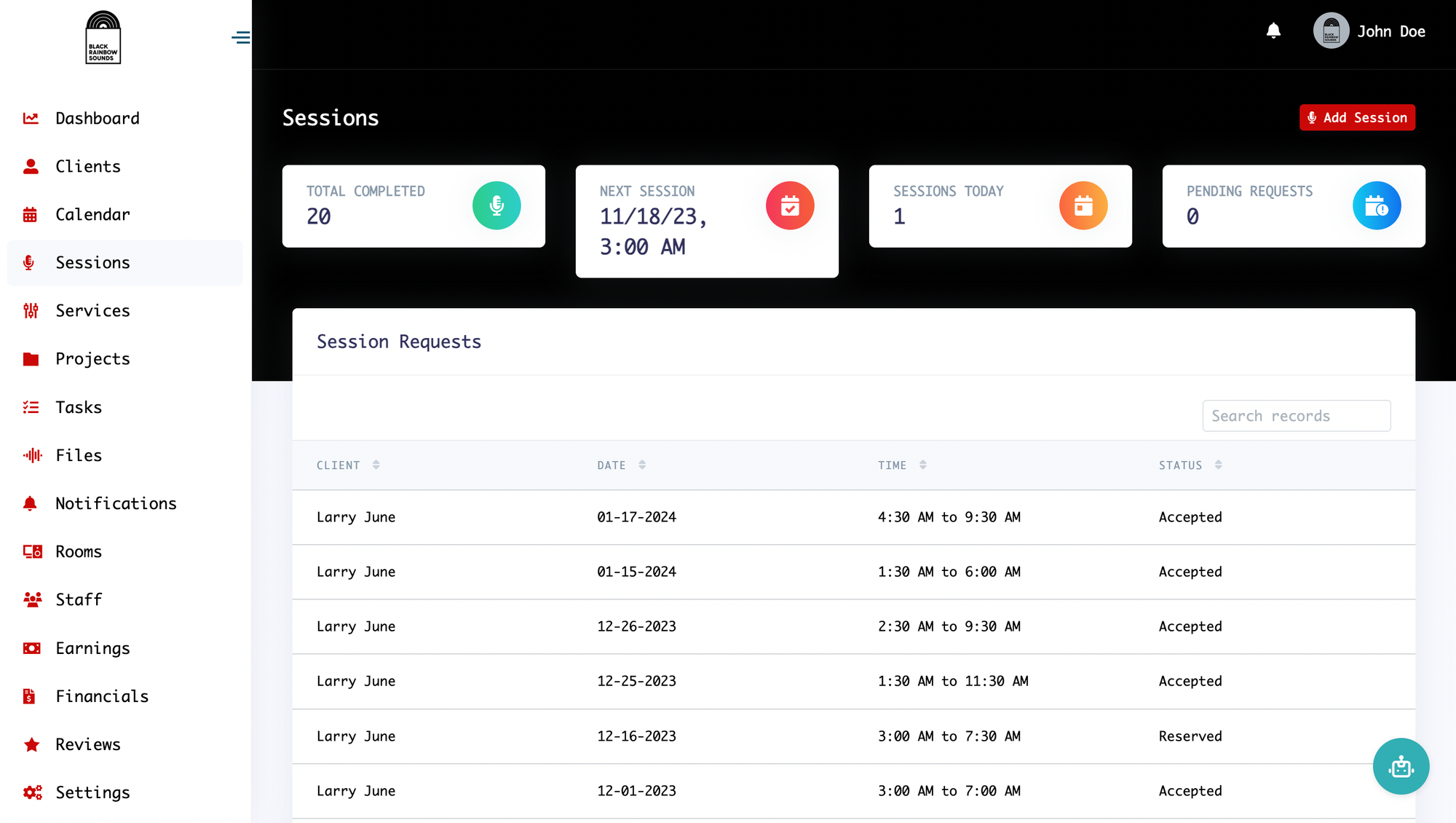
The importance of a recording studio management platform
Running a recording studio involves juggling multiple tasks and responsibilities. From managing bookings and scheduling to tracking equipment and handling finances, there's a lot that goes into running a successful studio. This is where a recording studio management platform becomes essential.
A recording studio management platform serves as a centralized hub for all your studio operations. It allows you to streamline and automate administrative tasks, saving you time and effort. By eliminating manual processes and reducing human error, you can focus more on what matters most – creating AudioDope.
Streamlining your studio operations
One of the key benefits of using a recording studio management platform is the ability to streamline your studio operations. Instead of relying on multiple tools and systems, a comprehensive platform brings everything together in one place. This means you can manage your bookings, invoices, client information, and more, all from a single dashboard.
Gone are the days of flipping through various spreadsheets or searching through emails to find important information. With a recording studio management platform, you can easily access and organize your data, making it simple to keep track of your studio's operations.
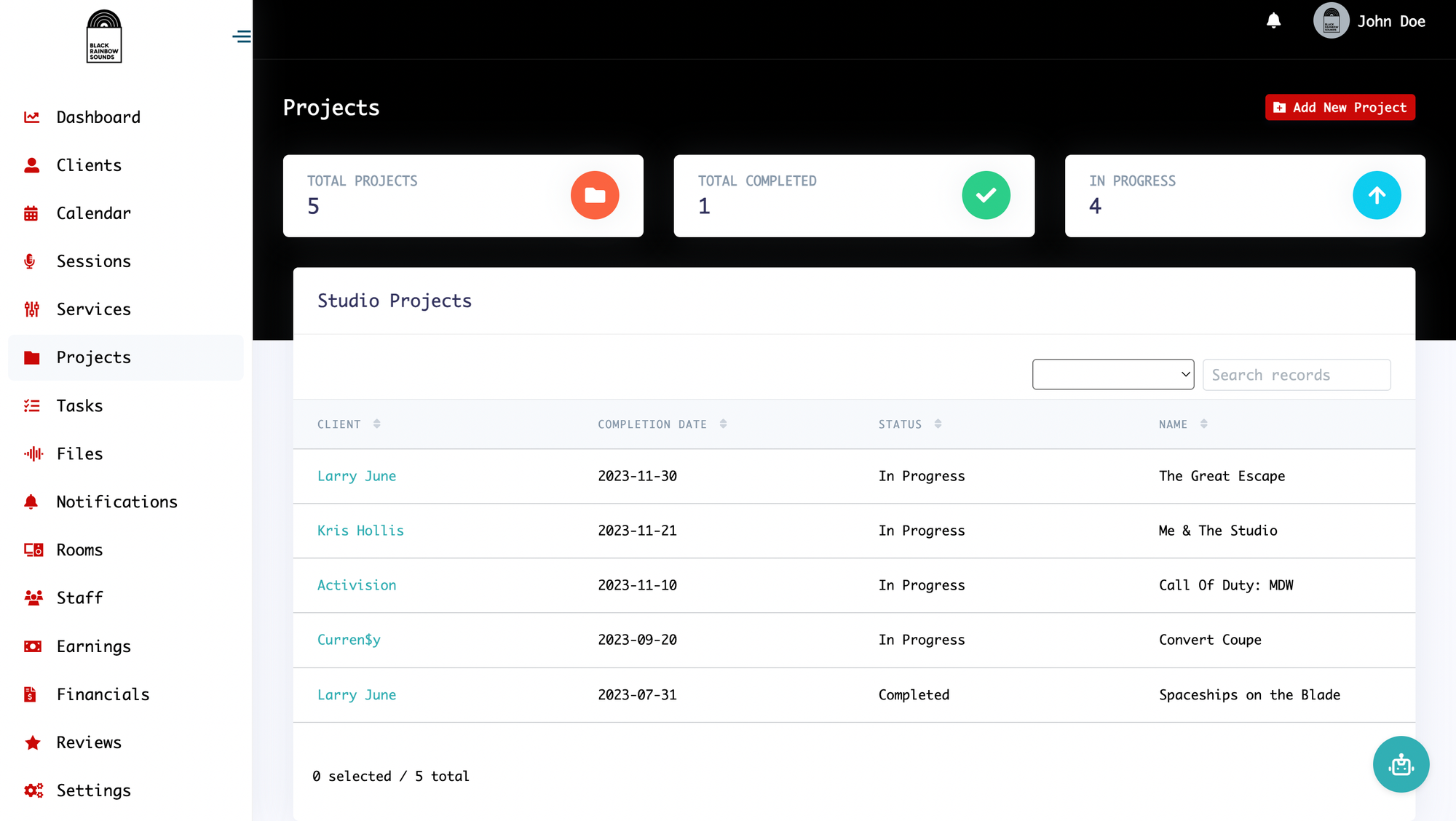
Features to look for in a recording studio management platform
When choosing a recording studio management platform, it's important to consider the features that will best suit your studio's needs. Here are some key features to look for:
- Booking and scheduling: A platform that allows you to easily manage and schedule bookings is crucial. Look for features like calendar integration, automated reminders, and the ability to customize booking options.
- Invoicing and payment: Ensure the platform offers seamless invoicing and payment functionalities. Look for options like online payment gateways, automated invoicing, and the ability to track and manage payments.
- Client management: The ability to store and manage client information is essential. Look for features like client profiles, communication tracking, and the ability to store project details and preferences.
- Inventory management: If your studio has equipment and gear that you rent out or use for projects, look for a platform that offers inventory management features. This will help you keep track of your assets, availability, and maintenance schedules.
- Project management: For studios working on multiple projects simultaneously, a project management feature can be incredibly useful. Look for options to create project timelines, assign tasks, and track progress.
- File sharing and collaboration: The ability to share files securely with clients and collaborators is vital. Look for platforms like that offer file storage, version control, and access restrictions to protect your intellectual property.
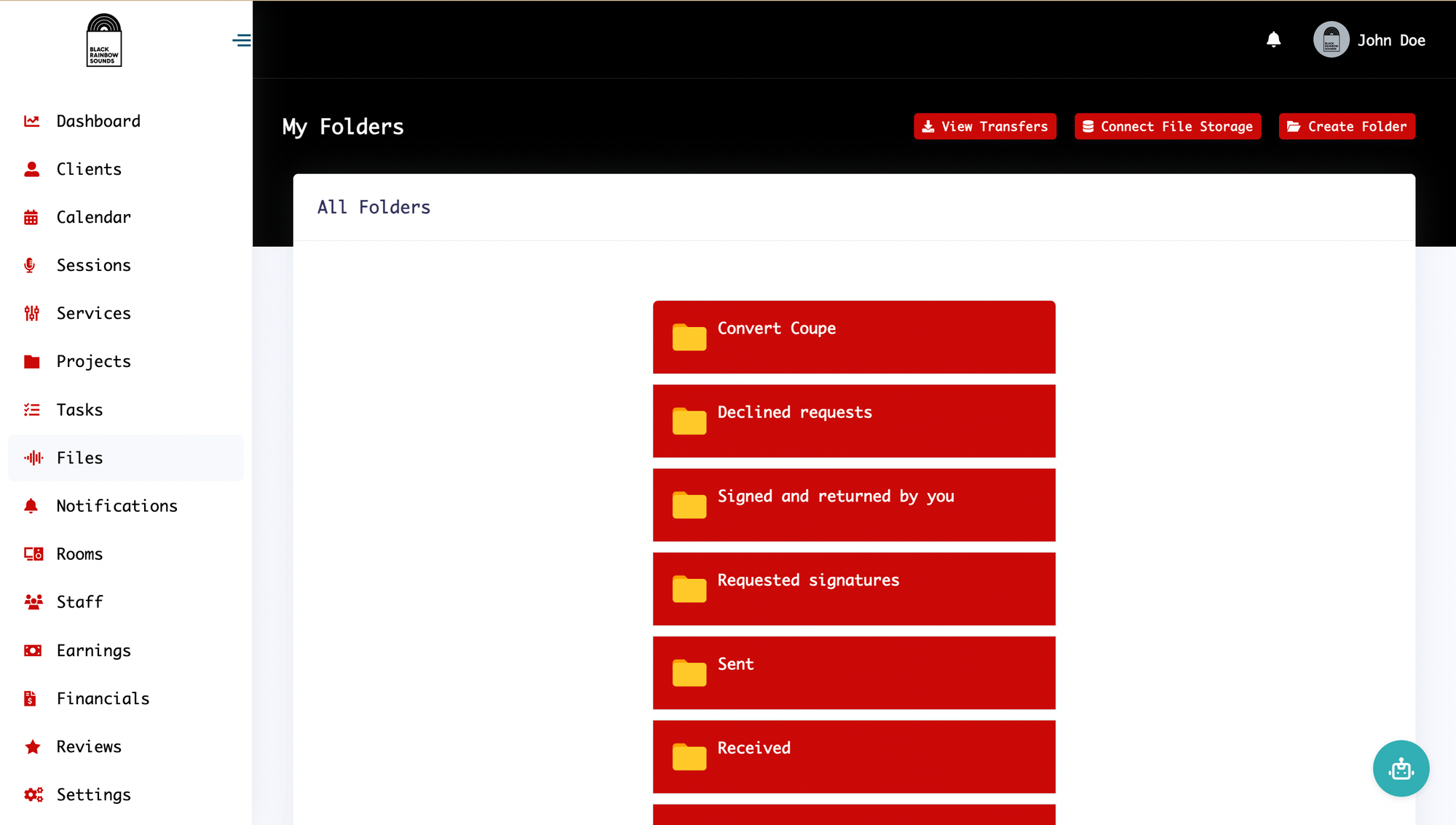
Benefits of using an all-in-one platform
Using an all-in-one recording studio management platform offers several benefits for studio owners and operators. Here are some key advantages:
- Time and cost savings: By automating administrative tasks and streamlining operations, you can save valuable time and reduce costs associated with manual processes.
- Improved organization: Having all your studio's data in one place makes it easier to stay organized and find information quickly. This leads to increased efficiency and productivity.
- Enhanced client experience: With online booking, payment, and file sharing functionalities, you can offer a seamless and professional service to your clients. This enhances their experience and sets you apart from the competition.
- Better financial management: A recording studio management platform allows you to track and manage your finances more effectively. You can generate invoices, track payments, and analyze financial data to make informed business decisions.
- Increased collaboration: With features like file sharing and project management, you can collaborate more effectively with clients and team members. This promotes better communication and teamwork.
Case studies: How studios have benefited from using a management platform
To understand the practical benefits of using a recording studio management platform, let's take a look at a few case studies:
Case Study 1: Black Rainbow Sounds was struggling to keep track of their bookings, resulting in double bookings and scheduling conflicts. After implementing a recording studio management platform, they were able to automate their booking process and eliminate scheduling errors. This led to increased customer satisfaction and a more efficient studio operation.
Case Study 2: Metro Sound had a hard time managing their equipment inventory. They often struggled to keep track of equipment availability and maintenance schedules. By using a recording studio management platform with inventory management features, they were able to streamline their equipment tracking, resulting in reduced downtime and increased revenue from equipment rentals.
Case Study 3: 1200 Music Management wanted to offer a more professional and convenient experience for their clients. By implementing a recording studio management platform with online booking and payment functionalities, they were able to attract new clients and improve client retention. Clients appreciated the ease of booking and paying online, which set 1200 apart from their competitors.
These case studies highlight the tangible benefits that recording studio management platforms can bring to your studio. By addressing specific pain points and improving efficiency, these platforms can have a significant impact on your studio's success.
Choosing the right platform for your studio
When choosing a recording studio management platform, it's important to consider your studio's unique needs and requirements. Here are some factors to consider:
- Scalability: Ensure that the platform can scale with your studio's growth. Look for options that offer different pricing plans or customizable features to accommodate your changing needs.
- Ease of use: Consider the user interface and intuitiveness of the platform. A user-friendly platform will minimize the learning curve and make it easier for you and your team to adopt and use the system effectively.
- Integration capabilities: If you already use other tools or software in your studio, check if the platform can integrate with them. Seamless integration will enable data flow between systems and prevent duplication of work.
- Customer support: Look for a platform that offers reliable customer support. Having access to technical assistance and training resources can help you make the most of the platform and overcome any challenges that arise.
- Security and data protection: Ensure that the platform prioritizes security and data protection. Look for features like data encryption, regular backups, and access controls to safeguard your studio's sensitive information.
By carefully evaluating these factors and considering your studio's specific needs, you can choose the right recording studio management platform that will support your studio's growth and success.
Implementing a recording studio management platform
Once you've selected a recording studio management platform, the next step is implementation. Here are some key considerations:
1. Planning: Create a detailed implementation plan that outlines the steps and timeline for migrating your studio's data and processes to the new platform. This will help ensure a smooth transition with minimal disruption.
2. Training: Provide training to your team members on how to use the new platform effectively. This could involve a combination of online tutorials, webinars, and hands-on practice. The better your team understands the platform, the more effectively they can utilize its features.
3. Data migration: If you're transitioning from an existing system or manually managed processes, you'll need to migrate your data to the new platform. Ensure that you have a clear plan for transferring your data accurately and securely.
4. Testing: Before fully implementing the platform, conduct thorough testing to ensure that all features and functionalities are working as expected. Identify and resolve any issues or bugs before rolling out the platform to your entire team.
5. Communication: Keep your team members and clients informed about the implementation process. Clearly communicate the benefits of the new platform and address any concerns or questions they may have.
By following these implementation best practices, you can ensure a successful transition to your new recording studio management platform.
Training and support for using the platform
To maximize the benefits of your recording studio management platform, it's important to provide ongoing training and support to your team. Here are some strategies:
- Initial training: Offer comprehensive training sessions for your team members to familiarize them with the platform. Provide hands-on practice and address any questions or concerns they may have.
- Documentation and tutorials: Create user manuals, video tutorials, and FAQs that your team members can reference whenever they need assistance. This will empower them to troubleshoot common issues on their own.
- Regular check-ins: Schedule regular check-ins with your team to address any challenges they may be facing. This will allow you to provide guidance, answer questions, and ensure that everyone is utilizing the platform effectively.
- Continuing education: Encourage your team members to stay up-to-date with the platform's new features and updates. Share resources such as webinars, articles, and online forums where they can learn and connect with other users.
- Technical support: Provide a dedicated point of contact for technical support. This could be an in-house expert or a representative from the platform's support team. Promptly address any technical issues to minimize downtime and frustration.
By investing in ongoing training and support, you can ensure that your team members are equipped with the knowledge and resources they need to make the most of your recording studio management platform.
Integrating the platform with other tools and software
To further enhance the functionality of your recording studio management platform, consider integrating it with other tools and software that you use in your studio. Here are some common integrations:
- Accounting software: Connect your recording studio management platform with your accounting software to streamline financial data and automate the invoicing and payment process.
- Calendar and scheduling tools: Integration with calendar and scheduling tools like Google Calendar or Outlook can help keep your studio's schedule up-to-date and synchronized across different platforms.
- Project management software: If you use project management software to track and manage your studio's projects, integrating it with your recording studio management platform can provide a seamless workflow and centralized access to project-related information.
- Communication and collaboration tools: Integration with communication and collaboration tools like Slack or Microsoft Teams can improve team communication and streamline file sharing within your studio.
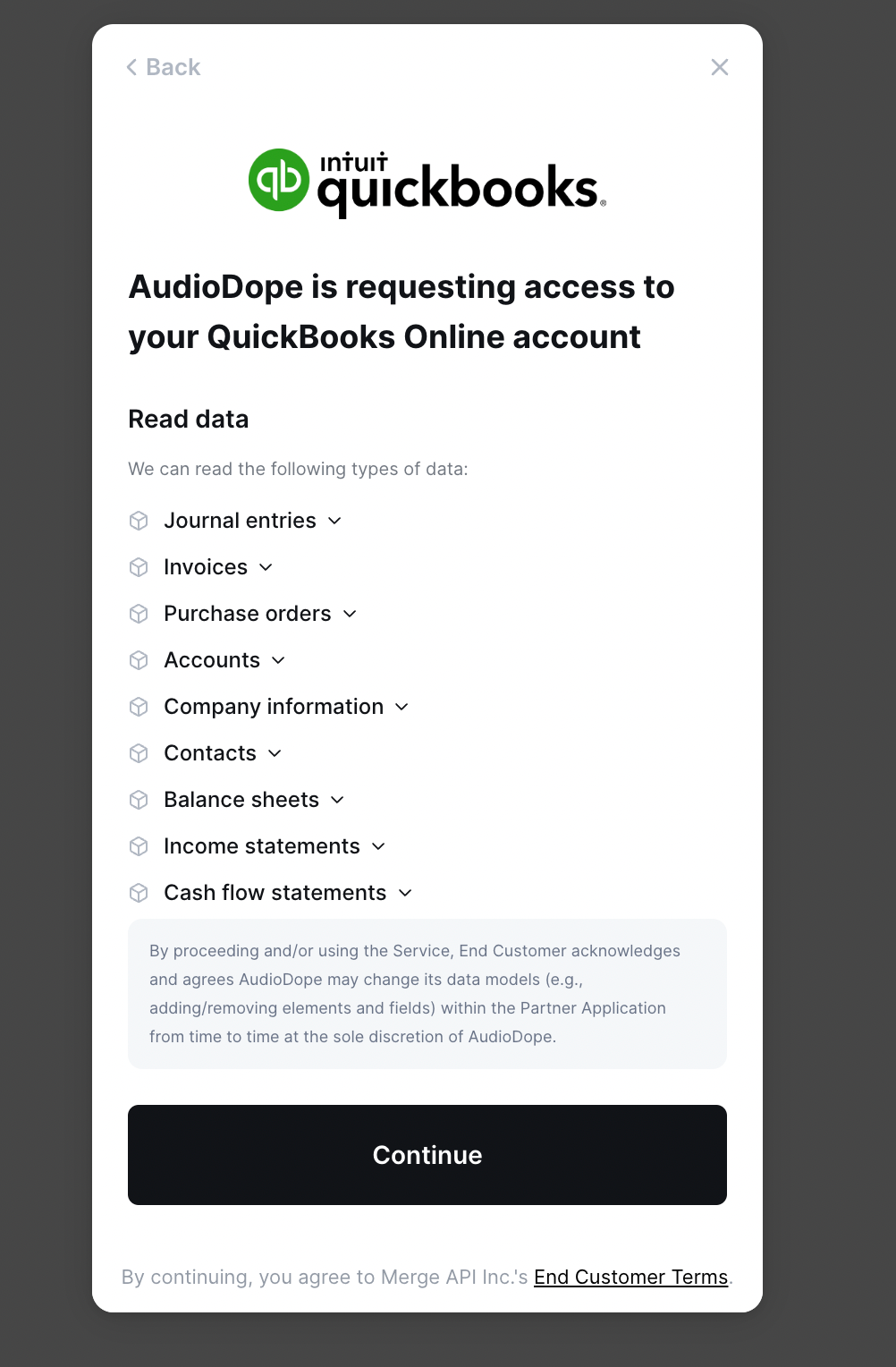
By integrating your recording studio management platform with other tools and software, you can create a cohesive and efficient workflow that eliminates redundancies and improves productivity.
Conclusion: The future of recording studio management platforms
As the music industry continues to evolve, recording studio management platforms will become increasingly essential for studio owners and operators. The benefits of streamlining operations, enhancing client experience, and improving efficiency are undeniable.
Investing in an all-in-one recording studio management platform can help you stay ahead of the competition, increase profitability, and provide a seamless experience for your clients. By carefully evaluating your studio's needs, choosing the right platform, and implementing it effectively, you can take your studio to new heights of success.
Embrace the power of technology and invest in a recording studio management platform like AudioDope Studio Manager. Your studio and your clients will thank you.


